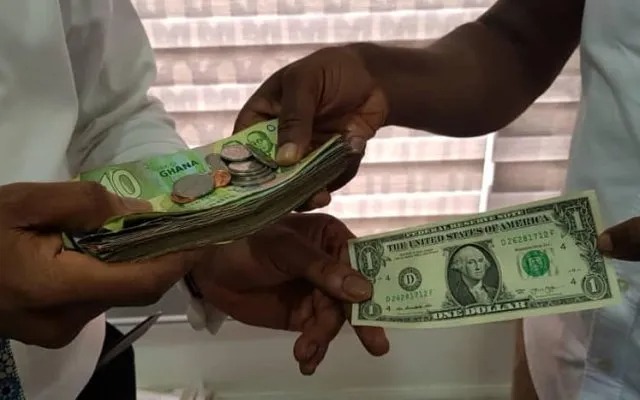Professor Godfred Bokpin, an economist and finance expert, has attributed part of the Cedi’s depreciation to the International Monetary Fund’s (IMF) programme with Ghana.
He said that under the IMF programme, the Central Bank was barred from intervening in the currency exchange market when the Cedi fell against major trading currencies.
That situation prevented the Bank of Ghana (BoG) from entering the foreign currency market to stabilise the Cedi.
Prof. Bokpin made the comment on a local radio station that was monitored by the Ghana News Agency (GNA) over the weekend.
“Part of the reason why the cedi is depreciating is also consistent with the latest IMF-supported program. Under the IMF-supported programme, they favour a stable exchange rate.
“This limits the ability of the central bank to be in the market and fight off the depreciation through our reserves.
“Part of the IMF programme is to build our reserve of three months of import cover for 2026…What that means is that it ties the hands of the central bank to intervene in the market to sell dollars to stabilise the cedi.
“Now they cannot do that under an IMF programme,” he said.
In May 2023, the IMF Executive Board approved a US$3 billion External Credit Facility (ECF) with Ghana for 36 months.
Prof. Bokpin also identified other factors that have influenced the cedi’s recent depreciation.
He said that the cedi’s depreciation was also triggered by the delayed foreign debt restructuring, which affected the receipt of the third tranche of the ECF under the IMF programme.
The IMF has indicated that it would transfer the third tranche of $360 million, notwithstanding Ghana’s inability to negotiate a final debt agreement with its official bilateral creditors.
Mr. Charles Kusi Appiah Kubi, a representative of the Ghana Union of Traders Association (GUTA) and a panellist on the discussion, suggested the prioritisation of retention policies to stabilise the cedi since multinational companies would be barred from repatriating profits.
Dr. Kwabena Nyarko Otoo, Director of Research for the Trade Union Congress, also encouraged the Central Bank to address the “open” trade of foreign exchange in Ghana, particularly the black market, to relieve pressure on the cedi.
Latest Stories
-
Inside Mahama’s “Big Push” agenda: The $10 billion blueprint Ghana’s future depends on
1 hour -
Moody’s downgrades US credit rating citing rising debt
2 hours -
GAF commanders pledge entire month’s salary to Mahama Cares Fund
2 hours -
GoldBod’s magic trick: Turning $279m into $897m – Where did the extra come from?
3 hours -
IERPP cautions GoldBod: Ghana gold export math discrepancy explained
3 hours -
AMA to begin decongestion exercise on May 20, orders all persons affected to vacate areas by close of May 19
3 hours -
Makola Market traders educated on insuring goods against fire
4 hours -
Absa: Ghana cedi rallied too far
4 hours -
DW Global Media Forum offers journalists platform to break barriers, build bridges
4 hours -
Volta Regional Minister fulfils GH₵10k pledge to GJA Volta, inspires others to give back
5 hours -
OPIT ready to train a generation of African AI champions
5 hours -
UG debunks claim of overstating employee compensation by GH¢59m
5 hours -
Seven-member committee submits report on the death of Nigerian boxer Gabriel Oluwasegun
5 hours -
‘I gave 500 cedis, not dollars’ – Mahama jests amid Sammy Gyamfi dollars gift
5 hours -
National Sanitation Day to be enforced, offenders will face sanctions – Mahama
6 hours

